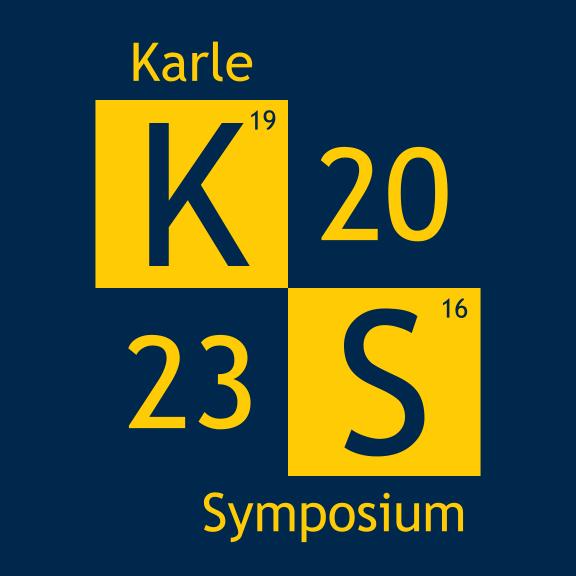Keynote Lecture
Professor Hannah Shafaat
University of California, Los Angeles
Biography
Hannah received her B.S. in Chemistry from the California Institute of Technology (Caltech) in 2006, where she performed research on spectroscopic endospore viability assays with Adrian Ponce (NASA Jet Propulsion Laboratory) and Harry Gray. She received her Ph.D. in Physical Chemistry from the University of California, San Diego (UCSD) in 2011, under the direction of Professor Judy Kim, as an NSF Graduate Research Fellow and a National Defense Science and Engineering Graduate Fellow. During her graduate research, she used many different types of spectroscopy to study the structure and dynamics of amino acid radical intermediates in biological electron transfer reactions. After earning her Ph.D., Hannah moved across the ocean to Germany to study hydrogenase and oxidase enzymes and learn advanced EPR techniques as a Humboldt Foundation Postdoctoral Fellow working under Director Wolfgang Lubitz at the Max Planck Institute for Chemical Energy Conversion. Since starting her independent career, Hannah has received the NSF CAREER award in 2015 to support work on hydrogenase mimics, and in 2017, she was awarded the DOE Early Career award to support the group’s research on one-carbon activation in model nickel metalloenzymes. The group has also received support for their research on heterobimetallic Mn/Fe cofactors through the NIH R35 MIRA program for New and Early Stage Investigators. Hannah was also awarded the 2018 Sloan Research Fellowship. Hannah and her group moved to UCLA in 2023 and are excited about the new opportunities that California will offer!
Abstract
Model metalloenzymes to catalyze the reactions of early life
Metalloenzymes catalyze the challenging chemical reactions that lie at the core of vital life processes, from carbon and nitrogen fixation to photosynthesis and respiration. Native metalloenzymes use only earth-abundant transition metals and operate under mild conditions, accessing reactivity that remains largely out of reach for synthetic systems. Given the importance of these fundamental processes in the context of energy, environment, sustainability, and human health, gaining molecular-level understanding into how metalloenzymes work is of the utmost importance. To this end, we are developing protein-based models as structural, functional, and mechanistic mimics of naturally occurring metalloenzymes. Targets to be discussed in this presentation include hydrogenase, carbon monoxide dehydrogenase (CODH), and acetyl coenzyme A synthase (ACS). These nickel-containing enzymes are implicated in chemoautotrophic origins of life and play key roles in the metabolisms of ancient bacteria and archaea. However, while these enzymes are highly functional within their cellular environment, most are costly to isolate, sensitive to external conditions, and generally poorly suited for large-scale application. Additionally, the multimetallic active sites and auxiliary cofactors obscure distinguishing spectroscopic features and render detailed analyses challenging. As a result, the molecular mechanisms of catalysis remain relatively poorly understood, thwarting efforts to build biomimetic synthetic systems that act with the efficacy of native enzymes. By combining functional studies of our model proteins with diverse spectroscopic techniques and computational investigations, we can obtain a comprehensive understanding of how the electronic and geometric structures dictate reactivity in each system. Reconstructing functional metalloenzymes “from the ground up” offers direct insight into the fundamental chemical principles driving the natural systems. Looking forward, we hope to apply these principles towards engineering effective systems for energy conversion reactions while learning about fundamental chemical transformations that may underlie the evolution of prebiotic processes into early life.
Plenary Lecture
Edward F. Rakiewicz, Ph.D.
Corporate Fellow and Intrapreneur
Biography
Ed Rakiewicz is a Corporate Fellow and Intrapreneur at PPG, a leading global manufacturer of paints, coatings and specialty materials headquartered in Pittsburgh, Pennsylvania. In this role, Ed is responsible for the identification and development of early stage adjacent and transformational “front end” ventures that have the potential to create new revenue streams for the company. He also plays a key role in developing and leveraging external partnership, funding and licensing opportunities with universities, government agencies and other companies.
A 32-year veteran of the coatings and specialty chemicals industries, Ed has held a variety of analytical, product development, innovation/technical leadership and business development roles focused primarily on the Automotive, Industrial and Aerospace markets. His accomplishments include numerous contributions relating to the characterization, advancement and commercialization of new innovative materials and processes. His 25 US patents and 8 technical publications cover a wide variety of sustainable technologies including NOx-reducing fluid catalytic cracking (FCC) catalysts, lithium-ion battery electrodes and numerous environmentally-friendly metal pretreatments and corrosion protection coatings systems.
In addition to being named on several R&D 100 awards, Ed was a 2018 recipient of PPG’s biennial President’s Award for Technical Achievement for the successful development and commercialization of Zircobond® pretreatment, a market disrupting technology for the Automotive and Industrial markets. In 2021, Ed was elected to the PPG Collegium, an association of PPG leaders who have made key technological contributions that support PPG’s growth and financial success.
A native of Pennsylvania, Rakiewicz received a B.S. in Chemistry with Honors from Mount St. Mary’s University (Emmitsburg, MD) and a Ph.D. in Physical Organic Chemistry from Penn State University. Ed serves on the External Advisory Board (EAB) for the University of Minnesota’s Department of Chemical Engineering and Materials Science (CEMS) and is a mentor at the Swartz Center for Entrepreneurship at Carnegie Mellon University.
Abstract
Leveraging “Corporate Start-Ups” and Partnerships to Drive Organic Growth and Customer Sustainability
PPG is a leading global manufacturer of paints, coatings, and specialty materials headquartered in Pittsburgh, PA. The company was founded in 1883 by two entrepreneurs in Creighton, PA as the Pittsburgh Plate Glass Company, the first commercially successful plate glass manufacturing company in the US. During the last 140 years, it has endured, grown, evolved and transformed time and again by introducing revolutionary innovations that address large, unsolved problems and enable customers to be more efficient, effective and sustainable. This presentation will focus on the important role that “corporate start-ups” and external partnerships have played in the development and commercialization of several historical and recent transformative PPG innovations in the automotive and aerospace markets.
#Karle2023
CONTACT
Madison Knapp
madknapp@umich.edu
Hayley Herderschee
hherder@umich.edu



